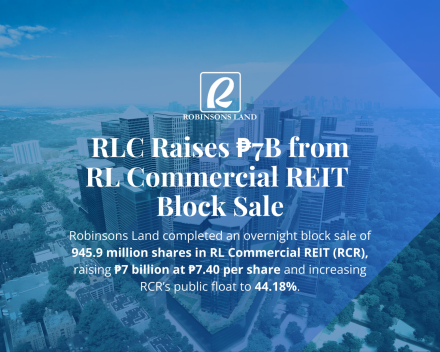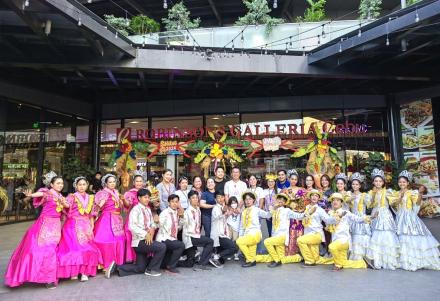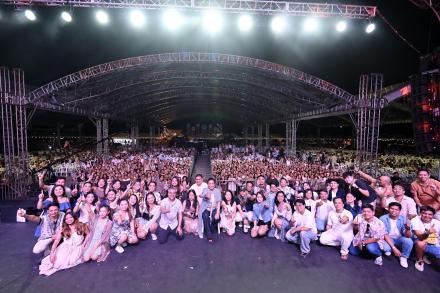Vernacular or native architecture is a building style that is adapted in a particular area because it works well in that place. The vernacular style is suitable for local environmental conditions and works well because it is designed to address needs and habits of a particular group of people. In a world where globalization has blurred the differences between cultures and adaptation of popular trends becomes too widespread so that box-like malls are everywhere, a return to the native styles is not only functional, it can also be an aesthetically refreshing decision.
In the Queen City of the South, Robinsons Galleria Cebu incorporates important aspects of the local culture in its building design. "Vernacular architecture is the inspiration for the front retail paseo albeit with a modern interpretation," says Arlene G. Magtibay, Robinsons Malls general manger "This is a modern take on the 'village feel' that prevails throughout Cebu's landscape."
Cebu City is a progressive urban and economic center that continues to thrive and grow. However, it has admirably retained the friendly, laid-back and personal feel of a more compact village. Thus, the layout and architecture of Robinsons Galleria Cebu is suitable to the relaxed, congenial and sociable nature of the Cebuanos. The well-planned paseos or walkways make leisurely strolls conducive, while attractive, airy and well-lit spaces within the mall contribute to creating an appealing ambience that make gatherings with family and friends more enjoyable.
"Robinsons Galleria Cebu's design is in keeping with Robinsons' vision to elevate and create a new shopping experience," adds Ms. Magtibay. "Angular shapes were employed throughout the development to create dynamic spaces and interesting zones. The paseos have indoor and outdoor components. The outdoor component offers an al fresco experience where pedestrians can meander, as well as lounge, dine, appreciate the sights, and breathe in fresh air while under the shade created by the terraces and balconies above.
She adds that while the other half of the paseo is enclosed, it is designed to simulate an outdoor street while providing the comfort of a temperature controlled environment. Both paseos are connected at different levels, and each level is laid out to loop back into the main mall.
Recognizing that this current generation of mall-goers appreciates a successful melding of form and function, Robinsons Galleria Cebu will simulate a "modern and sophisticated village" where everything can be conveniently found under one roof. Its 4-floor commercial building will house anchor tenants such as the Robinsons Supermarket, Department Store, Food Court, Cinema, True Value hardware, Robinsons Appliance Center, as well as outlet stores of key local and international brands. The vernacular design of the development will be enhanced by stores that carry distinctive Cebu brands and restaurants serving popular local or homegrown favorites. Two levels of basement parking have been designated for the convenience of mall-goers, and thoughtful design allows easy access for both physically-challenged and elderly mall-goers.
Robinsons Galleria Cebu, is RLC's biggest mall outside Metro Manila. The mall is an important component of a mixed-use development which will also include the second Summit Hotel in Cebu, two residential condominium buildings, as well as two floors or approximately 10.000 square meters designated as office spaces for business process outsourcing firms.
The seven story commercial building stands on a 4.7 hectare lot along General Maxilom Avenue in the North Reclamation Area. RLC foresees that it will reinvent, revitalize and increase property values in an area of Cebu City that was previously





